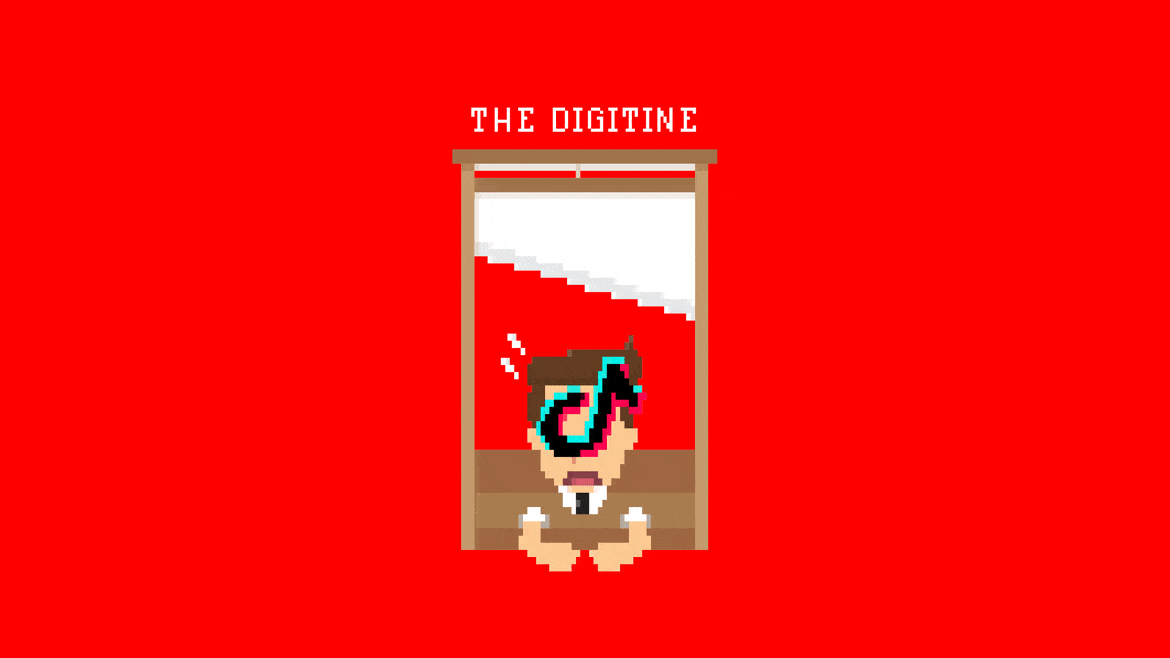Opinion: TikTokers Must Take a Stand on Gaza or Face the ‘Digitine’

She stands on a sidewalk wearing an oversized floral dress and headpiece, à la Midsommar, lip syncing “let them eat cake” as the catchy rhythms of Le Tigre’s “Deceptacon” take over. Despite the bouffant hair and lavish dress, we are not in 18th-century France and this is not Marie Antoinette—it is Haley Kalil, TikTok’s latest “It” girl. Like Antoinette, Kalil (better known as @haleyybaylee) has found herself at the mercy of her subjects who are calling for her to be digitally guillotined in an emerging trend known as the “digitine.”
The digitine refers to a digital purge of “canceled” online celebrities, blocking them with the intent of harming their income following their inaction on the genocide in Gaza. They face an ever-changing set of criteria. No McDonald’s, no Barclays bank account. These public figures are judged for their consumer habits rather than their political ones. With recurring phrases like “all eyes on Rafah,” and watermelon emojis (a symbol of Palestinian solidarity) dominating comment sections, the reckoning was inevitable.
Unfortunately for Kalil, her tone deaf video landed her at the center of the controversy. With allusions to The Hunger Games, users were quick to equate the fictional Capitol and the very real Met Gala, as the world’s elite reveled in a night of excess while protests raged outside.
They Wanted to Be Seen at the Met Gala. They Sure Were.
This separation of powers is a tense balancing act, demanding influencers decide whether social media should be kept apolitical as a place of escapism, or whether they have a moral obligation to decry the world’s injustices. It seems the grace period they were granted is over as viewers demand more from their favorite creators, with those who refuse to speak out finally facing the consequences of their inaction.
Social media has not been designed to preserve this balance. Apps that were once intended as light-hearted platforms for dancing videos have relied on algorithms that instead open the void for users to fall down these nihilistic rabbit holes. TikTok itself has become a dystopia, with a mishmash For You Page featuring videos of dead children immediately followed by highlights from The Basement Yard, or whatever podcast is trending that month.
If you somehow manage to override the algorithm and avoid generating a feed ripe for doom-scrolling, you must grapple with this whiplash effect. Documentaries like The Social Dilemma highlighted these flaws, which resulted in users viewing former President Barack Obama’s tweets with the same level of importance as meme accounts. On TikTok, Gazan medical shortages become as important as the latest makeup launch; bombings are only as important as today’s recipe tutorial.
Problems like these suggest that it would be irresponsible for influencers to weigh in on global issues, with platforms unequipped at prioritization. Scrolling through Kalil’s account days after the controversy has this disorienting effect. The Marie Antoinette video has been deleted and her apology has been superseded by a return to her usual comedy content. The apology itself also faced backlash as she said, “I am not one of the elite” from the comfort of her $17,000 a month apartment. Her bio remains ‘a land where nothing is serious,’ as she enjoys the privileges of celebrity that so-often enable political apathy.
Ultimately, TikTok is not a news source. Haley Kalil is not a news anchor, and cannot be expected to offer critical insight into a complex, centuries-long conflict. And yet, for those without a political-leaning FYP, these influencers might be their entry point to civic awareness. It’s a bleak world when we’re relying on celebrities like Kim Kardashian to influence global politics, but if she can sell an estimated $750 million in Skims products, just think how much she could raise for people in need.
Kim K Quips ‘Free Everybody’ When Confronted by Pro-Palestine Protesters
Influencers are quick to leap to their own defense, blaming their own ignorance. Unsurprisingly, this doesn’t land with viewers, like when Mario Mirante aggressively refused to take a stand for fear of saying the wrong thing (later releasing this apology). Creators live in these bubbles, untouched by conflict and war. They seem reluctant to denounce their right-wing terrorist fans, or be seen as anything more than neutral when it comes to politics or war, largely from a fear of being “canceled.” Ignorance isn’t always bliss.
There have been plenty of efforts to make it easier for these online celebrities to leverage their large platforms into concrete charitable action. The popular TikTok comedian Erin Hattamer has championed the #passthehat trend while organizations like Operation Olive Branch do the hard work of finding suitable GoFundMe projects for creators to back.
Even those with lesser followings like @Yuvaltheterrible have managed to raise $200,000 in under 24 hours from one video. Imagine that magnified on the scale of influencers across the globe with their millions of fans, and perhaps the pressure put on influencers suddenly doesn’t seem so severe.
Although influencers have seemingly managed to delude themselves into thinking they have no impact on the real world, confined to its digital sphere, all of the data points to the contrary. It feels bleak to rely on influencers to educate the masses. It feels even bleaker to live in a world where influencers have so little empathy that they refuse to spend five minutes doing the bare minimum research to post a video with a relevant fundraiser.
Fans are not asking for anything profound. Even a gesture of support is often enough. Without even that bare minimum, perhaps the “digitine” blade is warranted.
Get the Daily Beast's biggest scoops and scandals delivered right to your inbox. Sign up now.
Stay informed and gain unlimited access to the Daily Beast's unmatched reporting. Subscribe now.


